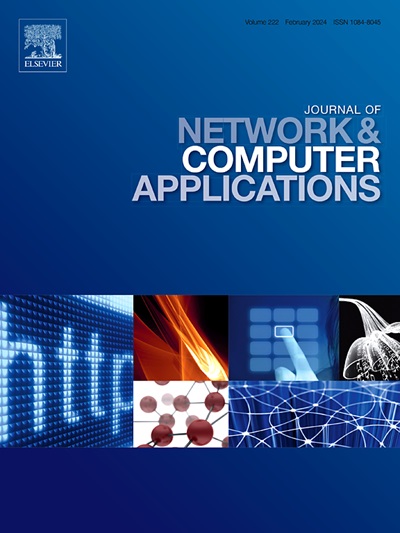Artificial intelligence-enhanced zero-knowledge proofs for privacy-preserving digital forensics in cloud environments
IF 8
2区 计算机科学
Q1 COMPUTER SCIENCE, HARDWARE & ARCHITECTURE
引用次数: 0
Abstract
This paper proposed an Artificial Intelligence (AI) enhanced Zero Knowledge Proofs (ZKPs) based comprehensive framework used to improve security, privacy, scalability and efficiency in forensic investigations for the multi-cloud environment, a growing concern for cybersecurity and digital forensics domains. With the growing invulnerability of data storage and inefficient processing in cloud computing landscapes, forensic investigations confront privacy preservation, data integrity, and interoperability issues amongst various cloud providers. Despite existing frameworks, there are few adaptive solutions that holistically solve these challenges. To address such issues and challenges, we propose a suite of frameworks, including an Adaptive Multi-Cloud Forensic Integration Framework (A-MCFIF), Multi-Factor Access Control Framework (MACF), Adaptive ZKP Optimization Framework (AZOF), and Privacy Enhanced Data Security Framework (PDSF) to bridge this gap. Incorporating AI-enhanced ZKP and Multi-Factor Authentication (MFA), these frameworks secure data and improve the efficiency of proof generation and verification while meeting privacy regulations such as the General Data Protection Regulation (GDPR) and the Health Insurance Portability and Accountability Act (HIPAA). Our extensive evaluation of the proposed framework included computing efficiency, memory consumption, data handling efficiency, scalability, overall performance, and cost-effectiveness. We also analyse verification latency to assess the framework’s real-time processing capabilities, which overcome existing solutions. Furthermore, our research includes cloud-specific threat models such as insider threats and data breaches and shows the benefits of the proposed framework for counteracting these risks by proving mathematical and empirical security against privacy breaches. Finally, we bring new insights and contribute to the development of secure, privacy-compliant, and efficient forensic processes, which are elaborated as a comprehensive solution for more reconstructive forensic initiatives in increasingly sophisticated cloud environments.
用于云环境中保护隐私的数字取证的人工智能增强零知识证明
本文提出了一种基于人工智能(AI)增强的零知识证明(ZKPs)的综合框架,用于提高多云环境下取证调查的安全性、隐私性、可扩展性和效率,这是网络安全和数字取证领域日益关注的问题。随着云计算环境中数据存储的无懈可击性和低效率处理的增加,取证调查面临着各种云提供商之间的隐私保护、数据完整性和互操作性问题。尽管已有框架,但很少有自适应解决方案能够全面解决这些挑战。为了解决这些问题和挑战,我们提出了一套框架,包括自适应多云取证集成框架(a - mcfif)、多因素访问控制框架(MACF)、自适应ZKP优化框架(AZOF)和隐私增强数据安全框架(PDSF),以弥合这一差距。这些框架结合了人工智能增强的ZKP和多因素身份验证(MFA),可以保护数据,提高证据生成和验证的效率,同时满足隐私法规,如《通用数据保护条例》(GDPR)和《健康保险流通与责任法案》(HIPAA)。我们对提议的框架进行了广泛的评估,包括计算效率、内存消耗、数据处理效率、可伸缩性、整体性能和成本效益。我们还分析了验证延迟,以评估框架的实时处理能力,这克服了现有的解决方案。此外,我们的研究包括特定于云计算的威胁模型,如内部威胁和数据泄露,并通过证明针对隐私泄露的数学和经验安全性,展示了所提议的框架在抵消这些风险方面的好处。最后,我们带来了新的见解,并为开发安全、符合隐私和高效的取证流程做出了贡献,这些流程被阐述为在日益复杂的云环境中更具重建性的取证计划的综合解决方案。
本文章由计算机程序翻译,如有差异,请以英文原文为准。
求助全文
约1分钟内获得全文
求助全文
来源期刊

Journal of Network and Computer Applications
工程技术-计算机:跨学科应用
CiteScore
21.50
自引率
3.40%
发文量
142
审稿时长
37 days
期刊介绍:
The Journal of Network and Computer Applications welcomes research contributions, surveys, and notes in all areas relating to computer networks and applications thereof. Sample topics include new design techniques, interesting or novel applications, components or standards; computer networks with tools such as WWW; emerging standards for internet protocols; Wireless networks; Mobile Computing; emerging computing models such as cloud computing, grid computing; applications of networked systems for remote collaboration and telemedicine, etc. The journal is abstracted and indexed in Scopus, Engineering Index, Web of Science, Science Citation Index Expanded and INSPEC.
 求助内容:
求助内容: 应助结果提醒方式:
应助结果提醒方式:


